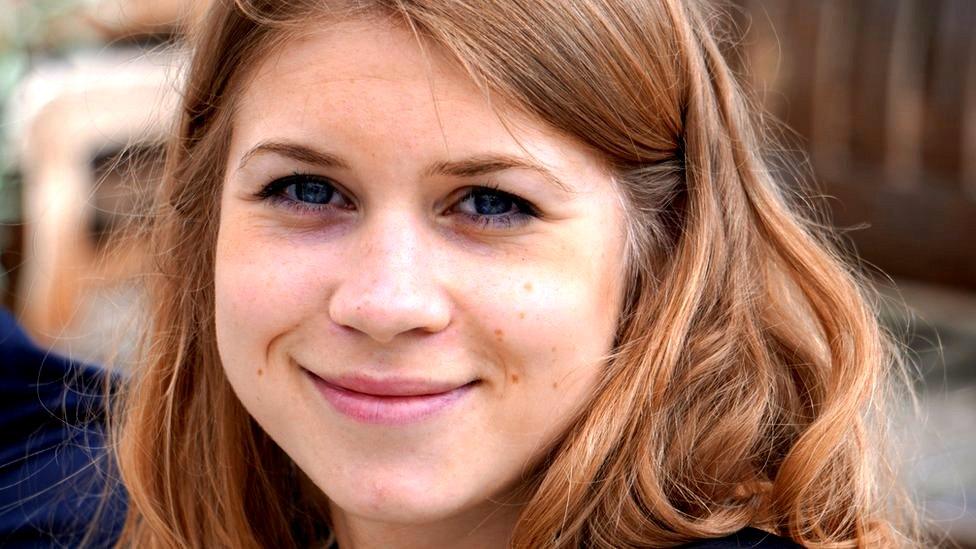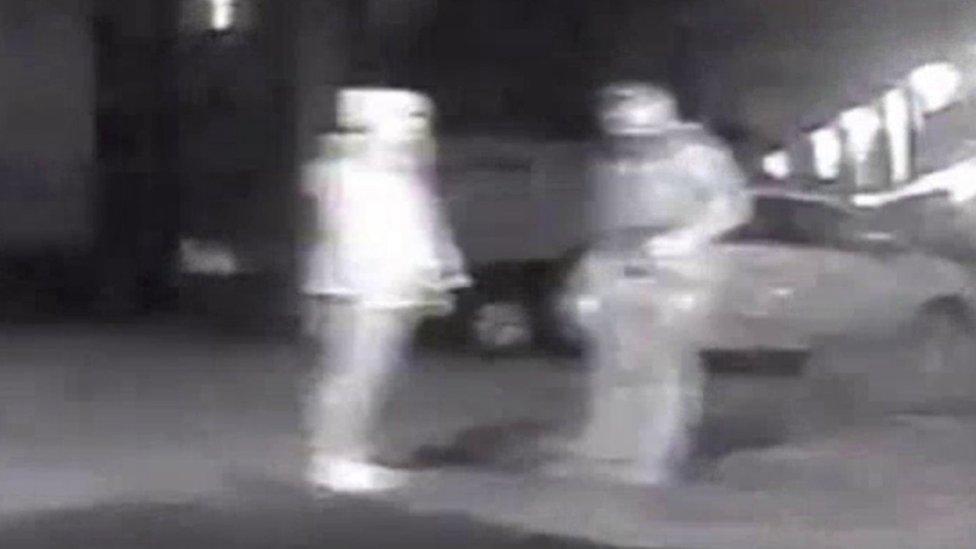Sarah Everard murder: New verification checks for Scotland's police
- Published

Sarah Everard was murdered after being abducted by a serving Met police officer
A new verification check for lone police officers in Scotland has been introduced in the wake of the murder of Sarah Everard.
Police Scotland said it wanted to reassure the public after she was abducted and killed by Metropolitan police officer Wayne Couzens.
Couzens, 48, used his warrant card to abduct Ms Everard from a south London street before raping and murdering her.
Members of the public in Scotland can now request a control room check.
Police Scotland said there was "understandable public concern" about the "horrendous murder of Sarah Everard".
The force said its officers normally worked in pairs, but in future on the rare occasions a lone officer approached a member of the public they would "proactively" offer an identity check.
Under the new process, the officer's personal radio will be put on loudspeaker so that another officer or a member of control room staff can confirm they are who they say they are, that they are on duty and the reason the officer is speaking to them.
The control room will then create an incident number which can be displayed on the officer's mobile phone or radio to confirm the broadcast message details.
If a lone officer has become involved in an incident they will call 999 and allow the member of the public to speak directly to control room staff.

Wayne Couzens (right) is believed to have shown Sarah Everard his police warrant card
Deputy Chief Constable Will Kerr said: "The appalling circumstances of Sarah Everard's murder have deeply affected people and many are now understandably concerned about verifying an officer's identity.
"Police officers will, of course, continue to approach any member of the public who appears distressed or vulnerable, to offer support and assistance.
"However, although it is rare for a lone police officer to have to speak to a member of the public in Scotland, we absolutely recognise our responsibility to introduce an additional means of verification to provide further reassurance to anyone, in particular women who may feel vulnerable, and who might be concerned if they find themselves in this situation.
"The onus is on us, as a police service, to proactively offer this additional verification process to any member of the public who appears distressed, vulnerable or frightened."
Couzens has been sentenced to a whole life sentence after targeting Ms Everard, 33, on a street in south London in March.
He used his police warrant card to trick her into being handcuffed, then drove her to Kent where he raped and murdered her. He later burnt her remains in what was a premeditated attack on a random victim.
The full details of his crimes only emerged during his sentencing last week, prompting national outrage and calls for more action to tackle violence against women.